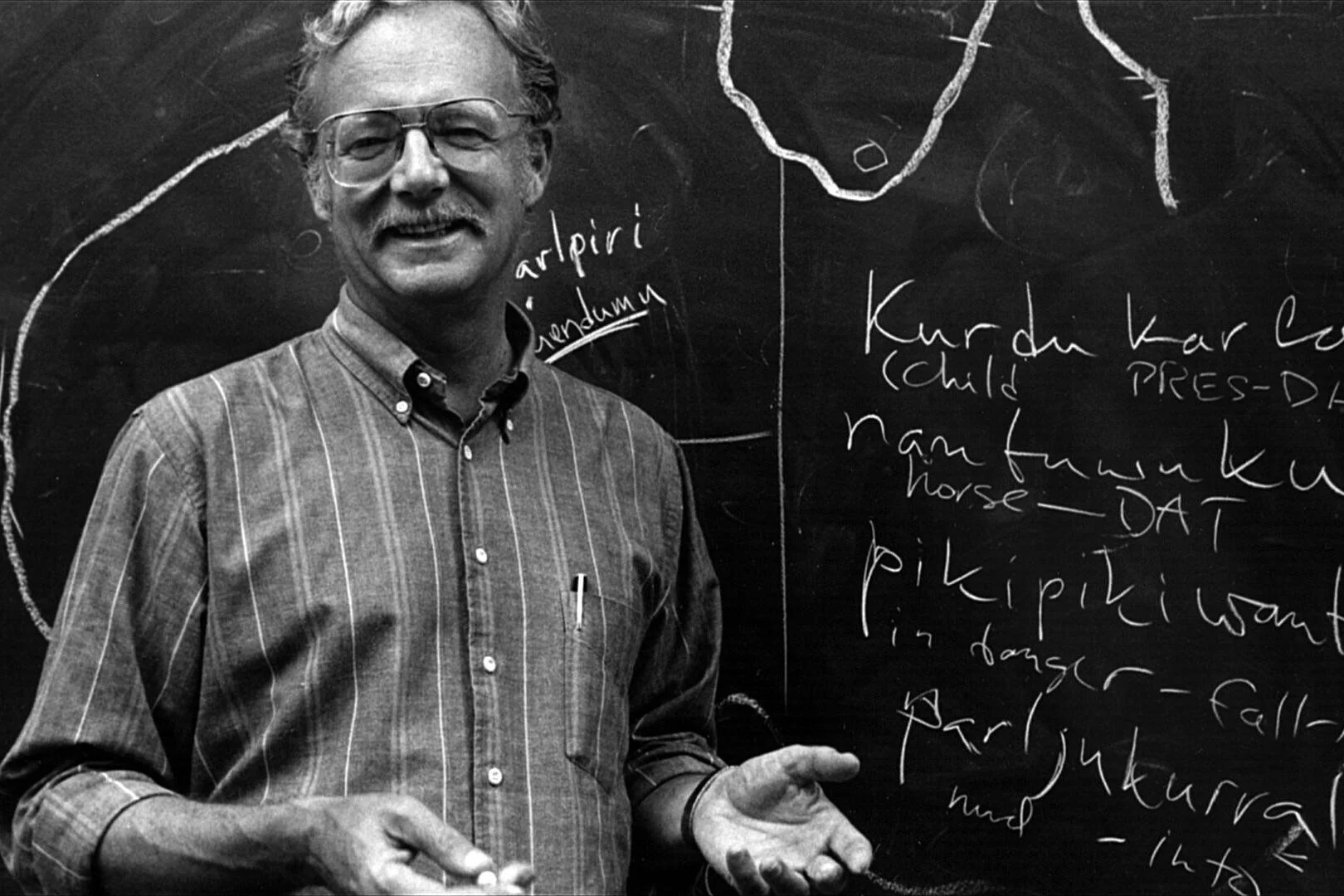The ken Hale prize
The Ken Hale prize is presented in recognition of outstanding community language work and a deep commitment to the documentation, maintenance, promotion, and revitalization of Indigenous languages in the Americas.
The prize, which usually carries a $500 stipend, honors those who strive to link the academic and community spheres in the spirit of Ken Hale. Recipients may range from native speakers and community-based linguists to academic specialists, and may include groups or organizations. Nominations may be made by anyone; however, either the recipient or the nominee must be a member of SSILA.
Nomination Process
Nominations may be made by anyone and should include:
Cover Sheet (download and fill out)
Letter of nomination, including:
position and affiliation, if appropriate, of nominee or nominated group (tribal, organizational, or academic)
summary of the nominee’s background and contributions to specific language communities
the nominee’s email address
Brief portfolio of relevant supporting materials, including for instance:
nominee’s curriculum vitae
description of completed or on-going activities of the nominee
letters from at least 2 of those who are most familiar with the work of the nominee (e.g. language program staff, community people, academic associates)
Other material that would support the nomination
Submission of manuscript-length works is discouraged.
The deadline for receipt of nominations is July 15.
The award is presented at the annual winter meeting. Nominations will be kept active for two subsequent years for prize consideration and nominators are invited to update their nomination packets if so desired. Please send nominations and inquiries to the SSILA Secretary.
About Ken Hale
This prize honors the memory of Kenneth Locke Hale (1934–2001), who spent nearly all of his career at the Massachusetts Institute of Technology. Ken worked on languages all over the world, but he began his career as an Americanist and continued to work on the Indigenous languages of the Americas throughout his life.
As a teenager, he learned Hopi and Towa, followed by Navajo as a University student. From the late 1950s Ken published major work in every branch of our field. He made foundational contributions to the comparative historical linguistics of Uto-Aztecan, Kiowa-Tanoan, and Misumalpan. He published basic work, always oriented toward fundamental theoretical problems, on dozens of Native American languages, especially Navajo, Hopi, Tohono O’odham, and Ulwa of Nicaragua. He made major theoretical contributions in semantics, phonology and syntax that were continually fresh over the 40 years of his career; for many years Ken was the ‘universal’ in ‘universal grammar’.
In recent years he was a leader in alerting the world to the problem of language endangerment. In addition to major publications on this issue, he made immense practical contributions, in encouraging work on endangered languages by students everywhere, in developing pedagogical materials, and, especially, in training, working with, and encouraging native-speaker and community-based linguists both inside and outside the academic world. Those he mentored and worked with include Florentino P. Ajpacaja Tum, Albert Alvarez, Hazel Dean-John, Jessie Little Doe Baird, Lolmay Pedro Oscar García Matzar, Salome Gutiérrez, Lorraine Honie, Abanel Lacayo Blanco, Laverne Masayesva Jeanne, Alyse Neundorf, Valentín Peralta, Waykan Benito Pérez, Ellavina Tsosie Perkins, Paul Platero, Pakal Rodríguez Guaján, Enrique Sam Colop, Irene Silentman, Mary Helen Taptto, Gregorio Tum, Lucille Watahomigie, Josie White Eagle, Mary Willie, and Ofelia Zepeda.
In the 1980s he participated in a distinguished effort to build community-based language development programs for endangered languages in Nicaragua. The many short courses and workshops he gave around the world included courses for native-speaker linguists in Guatemala in 1988 and 1994. The Maestría in Linguistics at the Universidad de Sonora in Hermosillo, an important new program specializing in Native American languages in Mexico, owed much to Ken’s tireless volunteer teaching. In the United States, he was one of the founders of the Navajo Language Academy, at which he continued to teach even in his final illness.
Ken’s unfailing and extraordinary generosity as friend and colleague to all who crossed his path in the Americanist world was one of the foundations of our sense of scholarly community.
Wikipedia contains a biography of Ken Hale with additional information.
previous recipients
Photo Credits
Ken Hale Award image: Image from the Navajo Language Academy, Swarthmore College.


